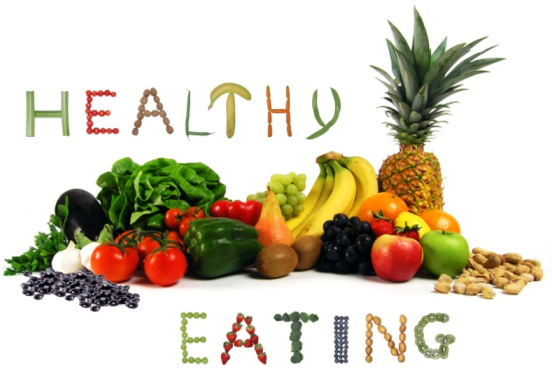Do you want to be the healthiest & best version of yourself? Then keep reading!
My Traditional Nutritional Guidelines

Everyone is always asking me.. what do you eat, or what do you tell your clients to eat?
Below is the basics i like to start from.
I am a big believer that one mans medicine is another mans poison.
What does that mean exactly?
We are all as different on the inside as we are on the outside & we are also very dynamic, always changing, evolving & needing different things in our diet to keep us vital, young & healthy.
I think it is as important to work out which of the healthy foods actually work well for “you” & start listening to what your body tells you after each meal as it is to “just eat healthy” everyday.
Our bodies give us plenty of feedback after each meal, we just need to be still enough occasionally to listen & feel for positive or negative effects.
If something gives you a negative effect, no matter how “healthy” it is stop eating it for a couple of months, quite often it is peoples favorite foods that are creating the problem because they are getting eaten too often.
Sometimes it is the healthiest of foods that are creating sub-optimal body shape, mood & vitality in someone, It just simply does not work for that individual at that time.
Below is a good starting point though, if you follow this guide for a decent length of time it will give you a well balanced, nutrient dense whole food diet with no nasty’s
- Eat Organic whole unprocessed food
- Eat Organic beef, lamb, game, organ meats, poultry and eggs from pasture-fed animals.
- Eat wild fresh fish (not farm-raised) and shellfish from unpolluted waters.
- Eat Organic full-fat milk products from pasture-fed cows, preferably raw and/or fermented, such as raw milk, whole yogurt, kefir, cultured butter, whole raw cheeses and fresh and sour cream. (Imported cheeses that say “milk” or “fresh milk” on the label are raw.)
- Use Organic animal fats, especially butter or even better ghee liberally.
- Use Organic Coconut oil also & cold pressed extra virgin olive oil. (But not for cooking at high heat).
- Take cod liver oil regularly to provide at least 10,000 IU vitamin A and 1,000 IU vitamin D per day.
- Eat Organic fresh fruits and vegetables in salads and soups, or lightly steamed.
- Only use Organic whole grains, legumes and raw nuts (sparingly) that have been prepared by soaking, sprouting or sour leavening to neutralize phytic acid, enzyme inhibitors and other anti-nutrients.
- Include enzyme-enhanced lacto-fermented vegetables, fruits, beverages and condiments in your diet on a regular basis.
- Prepare homemade meat stocks from the bones of chicken, beef, lamb and fish and use liberally in soups, stews, gravies and sauces.
- Use filtered water for cooking, showering and drinking.
- Use unrefined sea salt liberally in water & on food, this helps with absorption & digestion.
- Make your own salad dressing from scratch.
- Use natural sweeteners in moderation, such as raw honey, maple syrup, maple sugar, date sugar, dehydrated cane sugar juice (sold as Rapa Dura) and stevia powder.
- Use only Organic wine or beer in strict moderation with meals, not on an empty stomach.
- Cook only in stainless steel, cast iron, glass or good quality enamel.
- Use only natural, food-based supplements.
- Get plenty of sleep, exercise and natural light.
- Think positive thoughts and practice forgiveness.
Dietary Dangers
- Do not eat commercially processed foods such as cookies, cakes, crackers, TV dinners, soft drinks, packaged sauce mixes, etc. Read labels!
- Avoid all refined sweeteners such as sugar, dextrose, glucose, high fructose corn syrup and fruit juices.
- Avoid white flour & white flour products.
- Avoid all hydrogenated or partially hydrogenated fats and oils.
- Avoid all refined liquid vegetable oils made from soy, corn, safflower, canola or cottonseed.
- Do not use polyunsaturated oils for cooking, sautéing or baking.
- Avoid foods fried in polyunsaturated oils or partially hydrogenated vegetable oils.
- Do not practice veganism. Animal products provide vital nutrients not found in plant foods.
- Avoid products containing protein powders as they usually contain carcinogens formed during processing; and consumption of protein without the cofactors occurring in nature can lead to deficiencies, especially of vitamin A.
- Avoid processed, pasteurized milk; do not consume ultra-pasteurized milk products, low-fat milk, skim milk, powdered milk or imitation milk products.
- Avoid factory-farmed eggs, meats and fish.
- Avoid highly processed luncheon meats and sausage.
- Avoid rancid and improperly prepared seeds, nuts and grains found in granolas, quick rise breads and extruded breakfast cereals, as they block mineral absorption and cause intestinal distress.
- Avoid canned, sprayed, waxed and irradiated fruits and vegetables. Avoid genetically modified foods (found in most soy, canola and corn products).
- Avoid artificial food additives, especially MSG, hydrolysed vegetable protein and aspartame, which are neurotoxins. Most soups, sauce and broth mixes and most commercial condiments contain MSG, even if not indicated on the label.
- Individuals sensitive to caffeine and related substances should avoid coffee, tea and chocolate.
- Avoid aluminium-containing foods such as commercial salt, baking powder and antacids. Do not use aluminium cookware or deodorants containing aluminium.
- Do not drink fluoridated water.
- Avoid synthetic vitamins and foods containing them.
- Do not use a microwave oven.
I ALSO HAVE A “FREE GUIDE TO FAT LOSS” THAT CAN BE DOWNLOADED ON THE HOME PAGE
IF YOU FOUND THIS BLOG HELPFUL IN ANYWAY PLEASE SHARE IT WITH YOUR FRIENDS
THANKS
KEEP MOVING & HAVING FUN!

